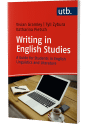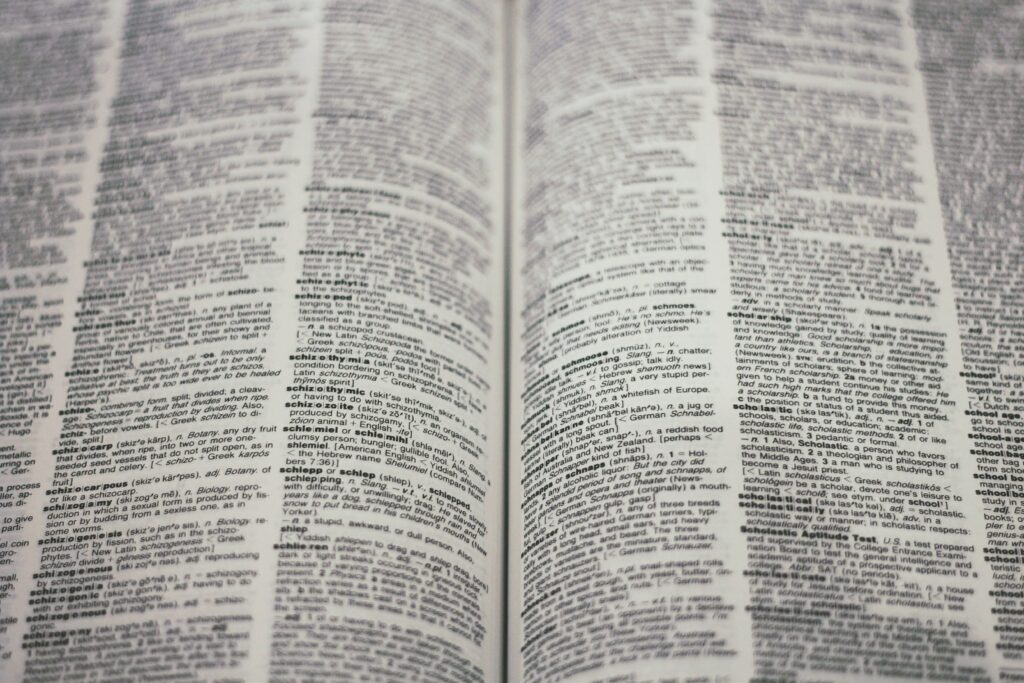About the book
How does academic writing work in English linguistics and in English literary and cultural studies? This book serves as a student guide to the conventions of writing in these disciplines. It introduces how linguistic and literary and cultural researchers think and write in their fields. Vivid examples and quotations from student papers show elegant solutions for approaching structure and formulation in academic writing. In this way, this volume makes the composition of university papers more accessible.
Snippet: pp. 44-47
1.5 How to become an expert on your own writing
Academic writing is not just a chore you need to complete for your degree. Because it trains you in so many skills on various levels – research, reading, analysis, argumentation, theory, language use –, mastering academic writing will empower you in all kinds of future careers, whether you become a university scholar, a teacher, a journalist, or just about anything else: Knowing how to engage with other people’s ideas and how to express your own ideas precisely and eloquently is a life skill that will always be useful. Writing in this sense, as a mode of expression of ideas, is not just about following rules and applying techniques, it is a personal undertaking. We would like to encourage you to reflect on your own writing and to become an expert on your own individual process, making writing not just what you do for a short time to complete a specific assignment but an empowering practice that you can own.
1.5.1 You are not alone: writing is hard for everyone, always
For most first-year students, writing their first term paper is the hardest thing they’ve ever done. For most advanced students, writing their bachelor’s and then their master’s thesis is the hardest thing they’ve ever done. For most Ph.D. students, writing their doctoral dissertation is the hardest thing they’ve ever done. For most professional scholars, writing their next book or article is the hardest thing they’ve ever done … You get the point. Writing is hard, always. Only very few people find writing easy. For most of us it never gets easy. Some parts of the process become easier than they were before, but with every new paper, with every new topic, with increasing length or prestige of a publication come new challenges.
Students often feel that there must be something wrong with them because they are struggling. Because they’ve never had such difficulties with anything else the way they have with academic writing, they think they must be stupid or unsuited for university life. They also often feel that they are the only ones struggling with this or that aspect of writing, like blank page anxiety, writing a conclusion, formatting a bibliography, finding a strong thesis statement, interpreting empirical data. None of that is true: These struggles are ubiquitous and unavoidable because academic writing is hard. But they are also individual because not everyone struggles with the same problems at the same time in their writing process. Some writers find conclusions easy once they have their line of argument, but constructing that argument in the first place is a painstaking process for them; other writers have no problem churning out page after page of text quickly, but structuring the sheer mass of text into a readable paper is difficult for them. If you can develop an awareness of your personal difficulties with writing, without blaming yourself for struggling, you will be more open for the individual solutions you eventually find to overcome those difficulties.
1.5.2 Understand your process and your strategies
Much of the writing advice you will receive at university, in books, and on the Internet is normative. To succeed you first need to do this, then that – all in a specific way, which is the right way, and you must absolutely avoid all those other things, which are wrong. If you do everything the right way, you are a good writer, a competent writer. But in our view, writing is more complex than that and the only right way is what works for you. So, what does work for you?
When students ask Tyll, who does a lot of writing supervision, “Should I do it this way or that way?” he will usually ask back, “Which way feels more comfortable/easy/motivating for you? Why?” Or he’ll ask, “Have you tried both ways before? Which worked for you?” And when students say, “I know the way I do it is wrong, but I can’t do it any other way – what do I do?,” he usually says, “Please explain the way you do it and why you think it is wrong. Does the way you do it work for you? Are you (or your graders) satisfied with your results? If yes, how can the way you produce the results be wrong? We need to think about alternatives only if it doesn’t work for you.”
These questions are designed to make students aware of the functional strategies that they are already applying to solve the problems inherent in the process of academic writing. And students, all of them, already have these strategies: Everything you do is part of a strategy, and strategies are neither right nor wrong. Sure, some strategies are less functional than others for individual students and for a specific purpose, but that just means that they can still be optimized, not that they aren’t strategies. Any strategy – ‘slow and steady’ or ‘binge writing,’ ‘introduction first’ or ‘introduction last,’ ‘writing two hours in the morning’ or ‘writing all night’ – can be perfectly functional, namely when it yields good results.
Getting rid of all the normative assumptions about ‘good writing’ and thinking about ‘your writing’ in terms of the strategies that you already use increases the chance of finding a process that works for you. Thinking about your writing in terms of strategies steers you away from feelings of incompetence and emphasizes your agency in what you do: Instead of thinking, “I’m doing it wrong, how can I do it right?,” you can profit from thinking, “This is how I do it. Does it need changing? If yes, what can I do differently to make it more effective?” With this mindset, you can try out new and different strategies or tweak the ones you find useful. Your supervisor can help you figure out alternative ways of writing that you might want to try (if they are not themselves trapped in normative assumptions about how they – and you – should write), but at the end of the day only you yourself can become an expert on your own writing.8
1.5.3 Understand your own priorities
Your teachers usually think that you (should) want to submit perfect work to achieve the best grade possible. But what are your own priorities, really? What do you want to achieve? What do you need to achieve? What is reasonable to expect? We – Vivian, Katharina, and Tyll – have all supervised students with completely different outlooks on their own work, and we think that all of them are legitimate. Some have high aspirations and are willing to put in a lot of effort to get a top grade (but not coincidentally they often also deal with a lot of writing anxiety and fear of failure); some have to take care of work or family and have only limited time to invest in the paper, so they temper their expectations of themselves; some just need a passing grade (but quickly!) so as not to lose financial support.
What a ‘good’ result means depends on what you want to achieve. This can be ‘getting it done quickly and receiving a passing grade,’ which is a perfectly reasonable aspiration in some situations, while in others you might go for ‘getting it perfect with a top grade.’ The better you know what you want to achieve with a paper and what you are currently capable of putting into it, the better you will know how to approach the topic and how to structure the work process.
___
8 A resource on efficient writing schedules for academic writing which we found useful is Silvia, How to Write a Lot. Katharina also finds the Pomodoro technique (Cirillo) immensely useful because it helps you to do focused work without distractions, and its manageable work units and frequent breaks help you survive longer writing projects like BA and MA theses.
***
Would you like to continue reading?
Order now via Budrich webshop:
 Vivian Gramley, Katharina Pietsch, Tyll Zybura: Writing in English Studies. A Guide for Students in English Linguistics and Literature
Vivian Gramley, Katharina Pietsch, Tyll Zybura: Writing in English Studies. A Guide for Students in English Linguistics and Literature
© Unsplash / image: Joshua Hoehne

